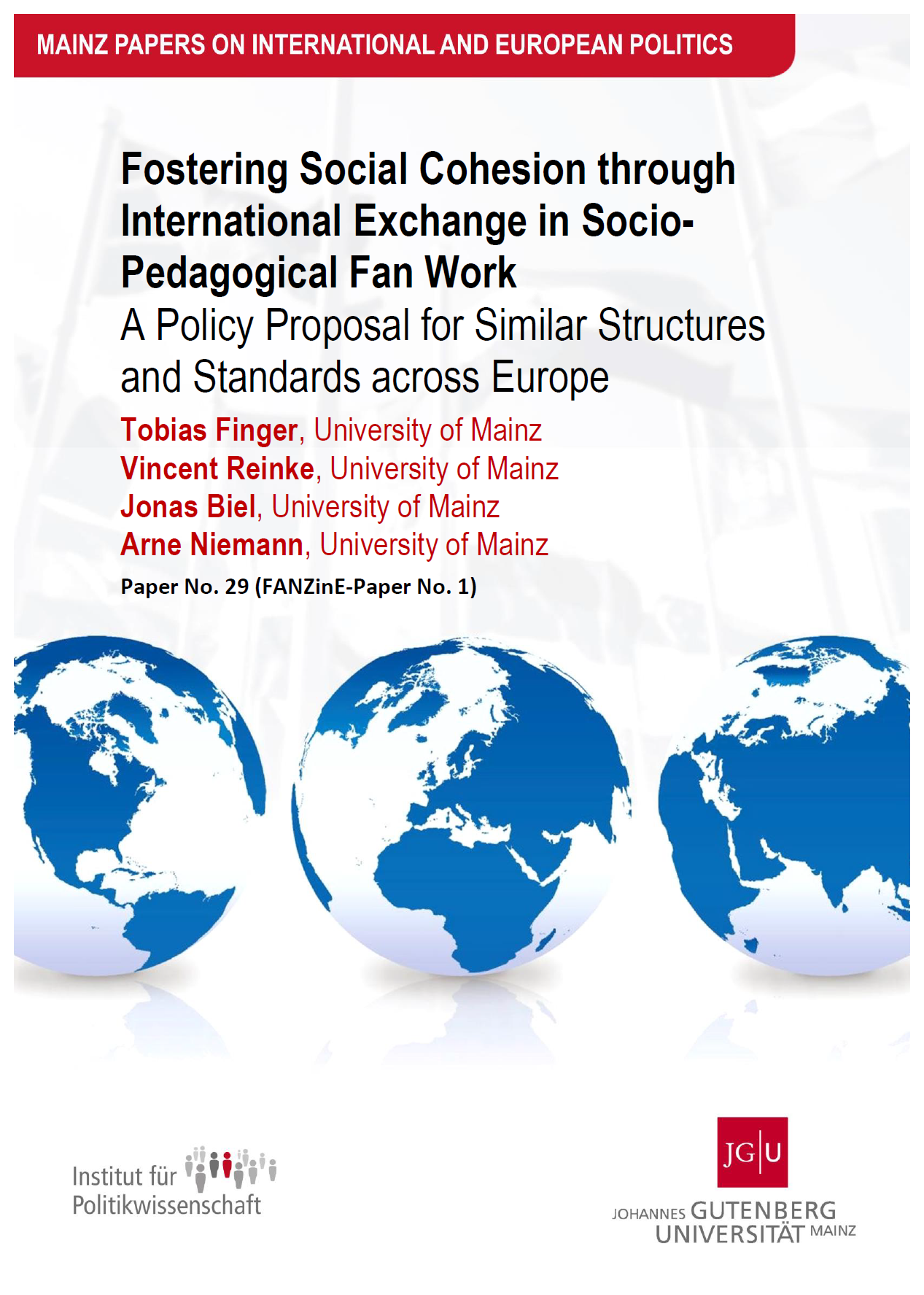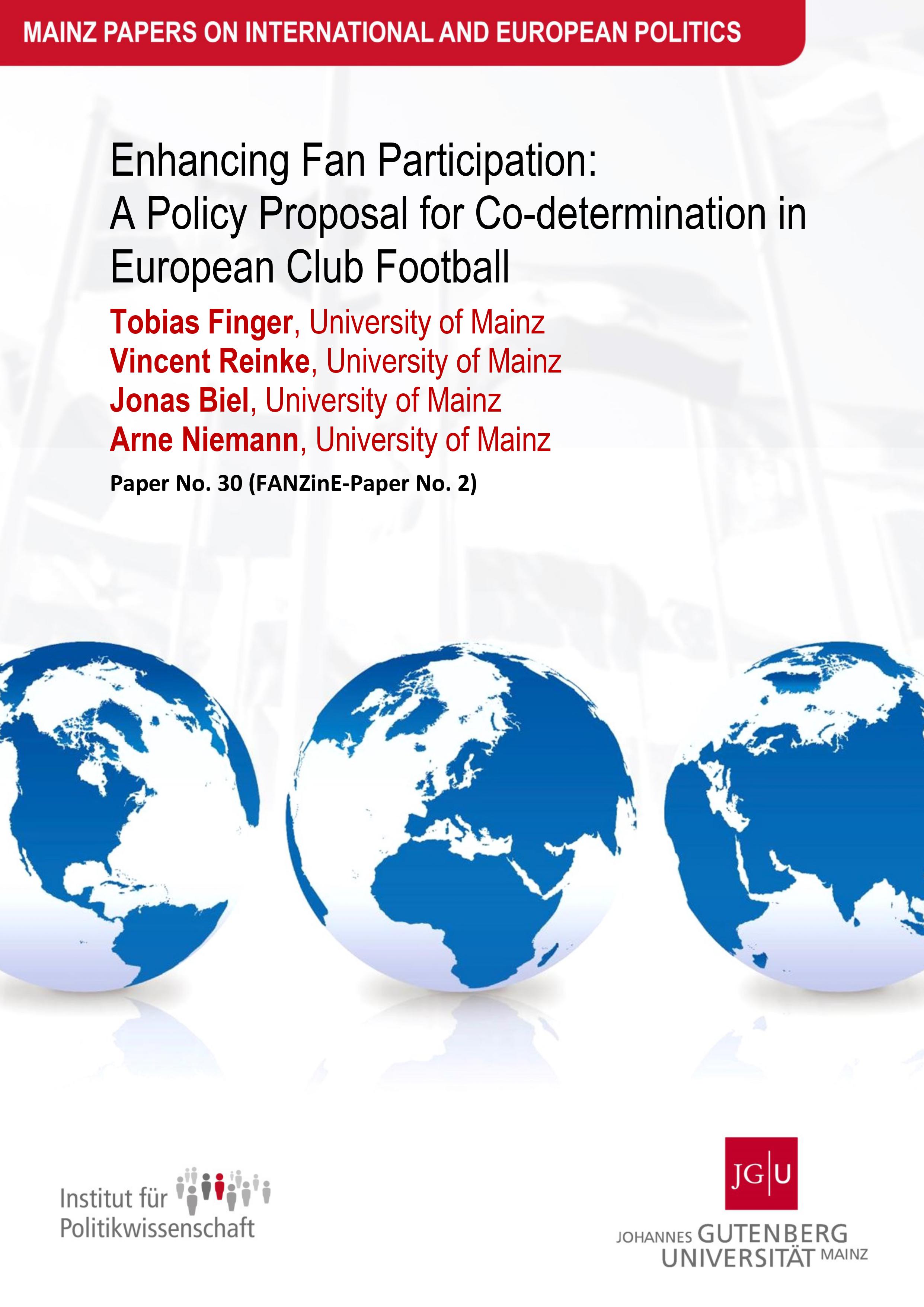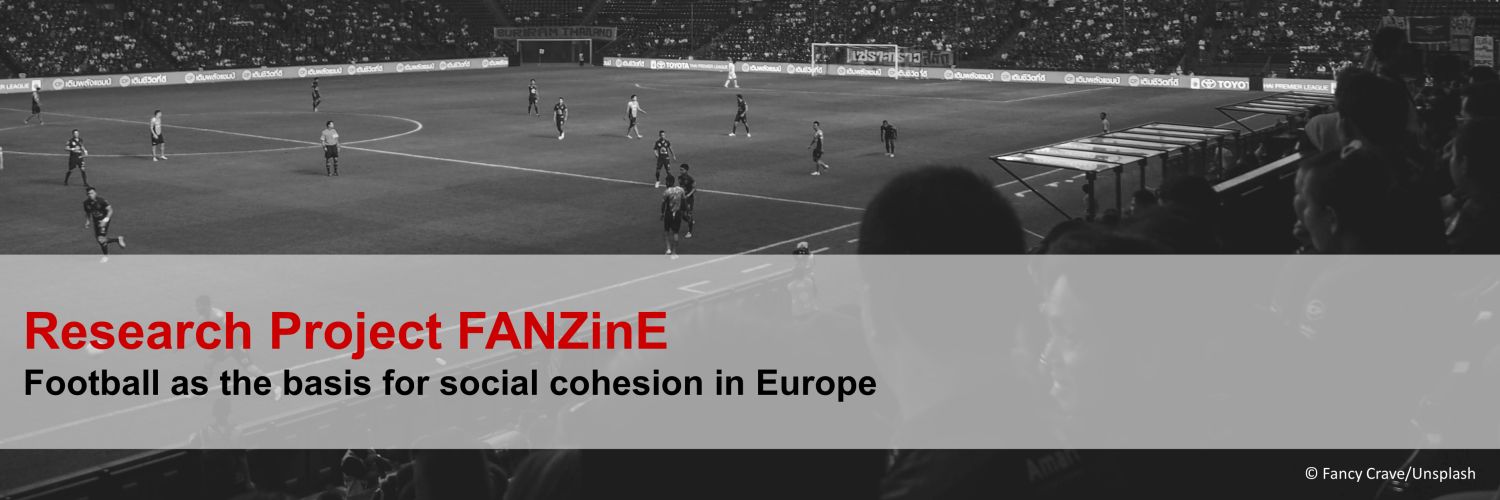Football, European identities and social cohesion in Europe
The FANZinE project explores the potential of professional men’s club football for shaping and fostering shared identity and social cohesion in Europe. Football as one of the most popular and unifying cultural phenomena on the continent transcends geographical, cultural, and linguistic boundaries. Its universal appeal makes it a potent tool for fostering connections and common ground among diverse European citizens. As a highly Europeanized sport with regular matches between teams from all over Europe, freedom of movement for players and personnel, intense media coverage, and dense cross-border networks of fans, football not only creates shared experiences, but also reflects the interconnectedness of Europe itself. Fans experience Europe, form connections to other Europeans, and explore a Europeanised life-world through their lived fandom. By analysing football and football fandom in Europe, this project seeks to highlight the intricate ways in which following football and and participating in football-related activities can contribute to the formation of European identities and the strengthening of social bonds. It aims to provide valuable insights into how a seemingly simple sport can play a pivotal role in fostering a more united and cohesive Europe “from below”.
FANZinE builds on and expands the work done by the EUFOOT-project (‘The identity effect of Europeanised lifeworlds. Becoming European through Football?’).
Policy Recommendations
 We are excited to present our first policy paper, Fostering Social Cohesion through International Exchange in Socio-Pedagogical Fan Work. This comprehensive proposal outlines strategies to enhance social cohesion across Europe by adopting and adapting successful socio-pedagogical fan work structures from Germany. By promoting international collaboration and creating a unified framework, we aim to leverage football’s potential to strengthen European identity and social cohesion. Read the full paper here.
We are excited to present our first policy paper, Fostering Social Cohesion through International Exchange in Socio-Pedagogical Fan Work. This comprehensive proposal outlines strategies to enhance social cohesion across Europe by adopting and adapting successful socio-pedagogical fan work structures from Germany. By promoting international collaboration and creating a unified framework, we aim to leverage football’s potential to strengthen European identity and social cohesion. Read the full paper here.
 Our second policy paper, Enhancing Fan Participation: A Policy Proposal for Co-determination in European Club Football shows a growing alienation of fans from football. To remedy this, we propose instituting democratic fan involvement at all levels of European football. By establishing structured dialogue and tangible influence in decision-making processes, fans can become a part in designing a socially and financially sustainable, equitable, and just football of the future. Read the full paper here.
Our second policy paper, Enhancing Fan Participation: A Policy Proposal for Co-determination in European Club Football shows a growing alienation of fans from football. To remedy this, we propose instituting democratic fan involvement at all levels of European football. By establishing structured dialogue and tangible influence in decision-making processes, fans can become a part in designing a socially and financially sustainable, equitable, and just football of the future. Read the full paper here.
